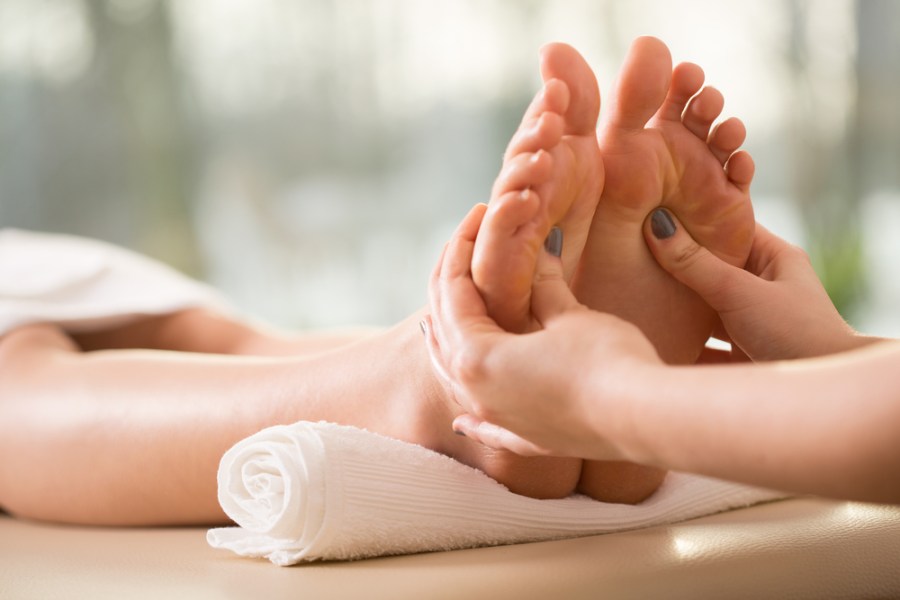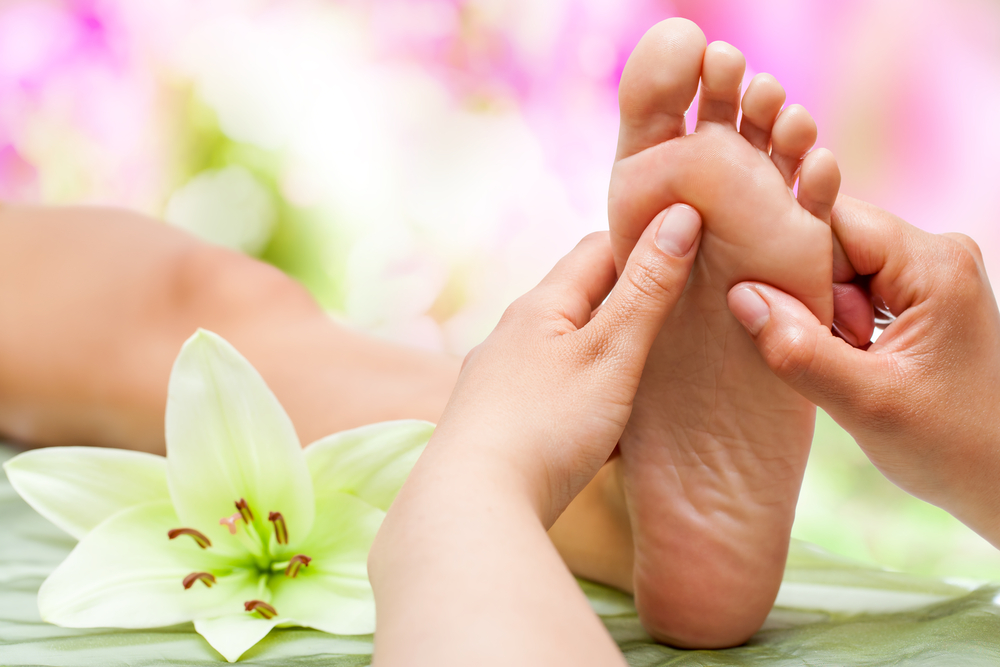We mark Reflexology Week this month by exploring the increasingly popular healing therapy
By Katherine Watt
Who’s our expert?
Tracey Smith is a Fellow of the Association of Reflexologists (aor.org.uk) and works as its reflexology and research manager.
What is reflexology?
Reflexology is a complementary health therapy based on the theory that different points on the feet (or hands, ears and face) correspond with different areas of the body. Working these areas through the application of specific types of pressure can help you relax, as well as in theory encouraging energy to flow through a particular area, unblocking tension.
‘Reflexology can be performed on most people, from babies to people needing end-of-life care, as it’s gentle and non-invasive,’ says Tracey Smith, a Fellow of the Association of Reflexologists.
How does reflexology work?
A typical appointment is around an hour, and involves you taking off your socks and shoes, and sitting or lying on a comfy massage couch or chair. You’ll talk through your medical history, before your feet are gently cleansed and foot cream applied. Then your therapist moves around each foot in turn, using different amounts of pressure to identify areas in the body where you might have an imbalance.
‘There are lots of theories behind reflexology, from it allowing energy to flow through the body, to it working through nerve responses,’ says Tracey. ‘Something which could explain the pain-relieving potential of reflexology is the gate-control theory, which states that feelings of pain pass through slow-acting nerves, while feelings around being touched travel through fast-acting nerves, meaning that gentle touch can help to block out pain before it reaches your brain.
‘At a basic level, reflexology helps to gently persuade the body into relaxation and to let go of tension, allowing your blood flow to increase and therefore helping your body to get rid of waste, and transport oxygen and nutrients more efficiently.’
How can reflexology help me?
There’s some evidence reflexology can have a big impact on pain. ‘There was a small research project that found that reflexology was statistically better at pain relief than Ibuprofen on menstrual pain,’ says Tracey. ‘The number of sessions you’ll need to deal with a specific problem will depend on how long you’ve been living with it. But most clients come out of a session feeling newer and happier, like everything works more easily.’
Easy reflexology exercise for neck pain
If you’re struggling with soreness, in your neck after sitting at a desk all day, try applying reasonably firm pressure to the base of your thumb, or big toe if you can comfortably reach it. Stiff shoulders will benefit from rubbing the fleshy part of your palm just under your little finger.
What can reflexology do for your wellbeing?
From stress, to aches and pains, or low immunity, followers of reflexology claim regular treatments can help the lot. ‘The theory of reflexology is that it brings the body back to balance,’ says Tracey. ‘Areas of the body that are working too hard are calmed, while those not working sufficiently are boosted. In this way, it may help a weakened immune system by both calming your inflammatory response, and simultaneously boosting your immune reaction against colds.’
Reflexology can help fertility and digestive problems
There’s a particular argument for trying reflexology if you’re having fertility problems or digestive issues, as reduction in stress can play a big part in relieving both. ‘When we’re stressed our bodies are in fight-or-flight mode, meaning blood is diverted from areas such as the digestive and reproductive systems, into the brain and limbs,’ says Tracey. ‘Deep relaxation allows the body to calm itself, and blood to flow, allowing these systems to function better.’
You can find a qualified reflexologist near you at aor.org.uk where you can also see interactive hand and foot maps. Reflexology week is September 24-30.
- Discover the secrets of astrology
- Read more about how to maintain good gut health








